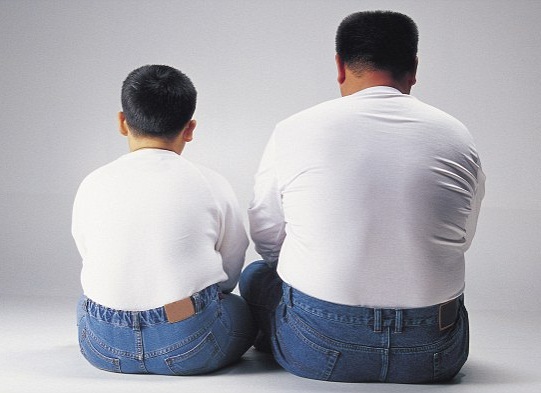
胖爸爸,胖儿子
Obese Dad's Sperm May Influence Offspring's Weight
胖爸爸,胖儿子
Overweight men's sperm undergo epigenetic changes that may alter a child's brain development and appetite control.
男性超重会引起精子的外源性变化。这种变化或会影响后代的大脑发育与食欲控制。
撰文/播音 克里斯托弗·因塔利亚塔(Christopher Intagliata)
翻译 M
审核 李轩
Just below the Arctic Circle in northern Sweden sits a town called ?verkalix. It's home to only about a thousand people. But those inhabitants were the subjects of a seminal study in human genetics: the research suggested that what our parents, or even grandparents ate—if they grew up during feast or famine—could actually affect our risk of heart disease and diabetes.
在瑞典北部接近北极圈的地方,有一个差不多只有1000人的小镇——上卡利克斯市(?verkalix)。那里的居民都是一项人类遗传学研究的对象:这项研究表明,父母、甚至是祖父母所食的东西——无论他们是生在食物充足或是饥荒年代——确实会影响我们患心脏病和糖尿病的风险。
"It shows that either caloric restriction or excess of food, can send, depending on the window of your own development, a similar message to the next generation." Romain Barres, a molecular biologist at the University of Copenhagen.
“这些结果显示,在成长期内,限制进食和暴饮暴食均会向后代传递相似的信息。”哥本哈根大学的分子生物学家,罗曼·巴拉斯如是说。
That trans-generational message is sent, of course, through sperm and eggs. So Barres and his colleagues compared the sperm of 13 lean versus 10 obese men. And they found that the heavyweights had epigenetic changes to their sperm - meaning additional chemical groups on their DNA that affect how genes are expressed. And many of those changes were to sequences known to affect brain development—including genes that regulate appetite.
这种代间传递的信息当然是通过精子和卵子进行传递。因此巴拉斯和他的同僚对比了来自13个纤瘦男性与10个肥胖男性的精液样本。他们发现超重对象的精液中含有外源性变化,即DNA上出现了影响自身表达的修饰基团。而大部分发生变化的基因序列均被认为会影响到大脑发育——其中也包括调节食欲的基因。
But the changes were not permanent. Because when the researchers studied the sperm of men who underwent weight loss surgery, they found that many of those genetic alterations reversed post-surgery, especially the ones in areas related to appetite control. The study is in the journal Cell Metabolism. [Ida Donkin et al,Obesity and Bariatric Surgery Drive Epigenetic Variation of Spermatozoa in Humans]
然而,这种转变并不是永久的。当研究人员考察一个经历过减重手术的对象的样本时,他们发现在术前出现的基因变化在术后被矫正过来,特别是与食欲相关的部分。这项研究发表在《细胞代谢》上。
The big question now is how much these epigenetic changes actually influence the next generation. Barres is now comparing fathers' sperm to the cord blood of their babies, to find out. But the finding suggests a mechanism by which our actions, our eating habits, our fitness, can affect our children. Which might make you wonder: what should you be eating?
最大的问题是,这些转变将在何种程度上影响到下一代?巴拉斯正通过对比父亲的精液与其子女的脐带血的基因,来确认这种影响的程度。另一方面,这项研究找到了机制来解释我们的行为、习惯与健康为什么会影响到我们的子女。这不禁使我们思考,我们该吃什么?
"And how long should you be doing pushups before you conceive your child? It's a long road before what we know is optimal for our children."
“但是能够离确切知悉应在备孕前多久开始体育锻炼对子女最好,还有很长一段路要走。”
And what may seem optimal today—like partaking of holiday feasting—may come back to haunt your children's children, like the ghost of Christmas past.
现在看起来最合理的事——比如尽情享节日大餐——却可能会影响你的子女,甚至是子女的子女,就像那圣诞幽灵一般。
未经书面许可任何人不得复制或镜像
京ICP备11000850号-1
 京公网安备11010502039775号
京公网安备11010502039775号 信息网络传播视听节目许可证0111611号
国家科技基础条件平台

















